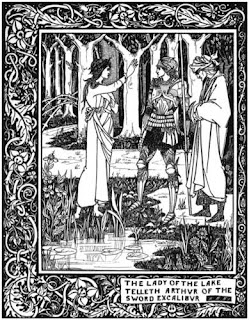So, I’m teaching a fantasy writing course at the Orange County School of Arts, and it’s…well, pretty freaking fantastic! The students are highly enthusiastic, all are well-read for their age, and we’re having a grand time talking about things like world building, magic, exposition, and whatnot. Because the students are all high schoolers, though, their reading has been focused primarily on contemporary fantasy authors, so I’ve made an effort to expose them to some of the key authors in the evolution of modern fantasy writing. It’s no easy chore to pick only one author a week who represents a transformative moment in the genre, but here’s what we’ve gotten through so far, complete with reading recs and my thoughts.
Origins of Fantasy: Mythology, Legends and pre-20th Century Literature

I have no qualms arguing that fantasy is the oldest genre of storytelling in the history of human civilization. Our earliest ancestors created fantastic tales to explain everything from the creation of Earth to why humans must experience suffering and pain. Fantasy authors have drawn from this well from the start, tapping into archetypes that are culturally, and perhaps even evolutionarily and spiritually, ingrained into us.
The most common inspirations for fantasy authors include Greek and Roman mythology, Norse mythology, Judeo-Christian mythology, Celtic mythology, Arthurian legend, and, to a lesser extent, Eastern mythology and philosophy (Taoism, for example, seems to be a big inspiration for Ursula K. LeGuin’s Earthsea series.)
Now, for the sake of defining limits for my class, I somewhat arbitrarily drew the starting cut-off line for “modern fantasy” as
Read more »




